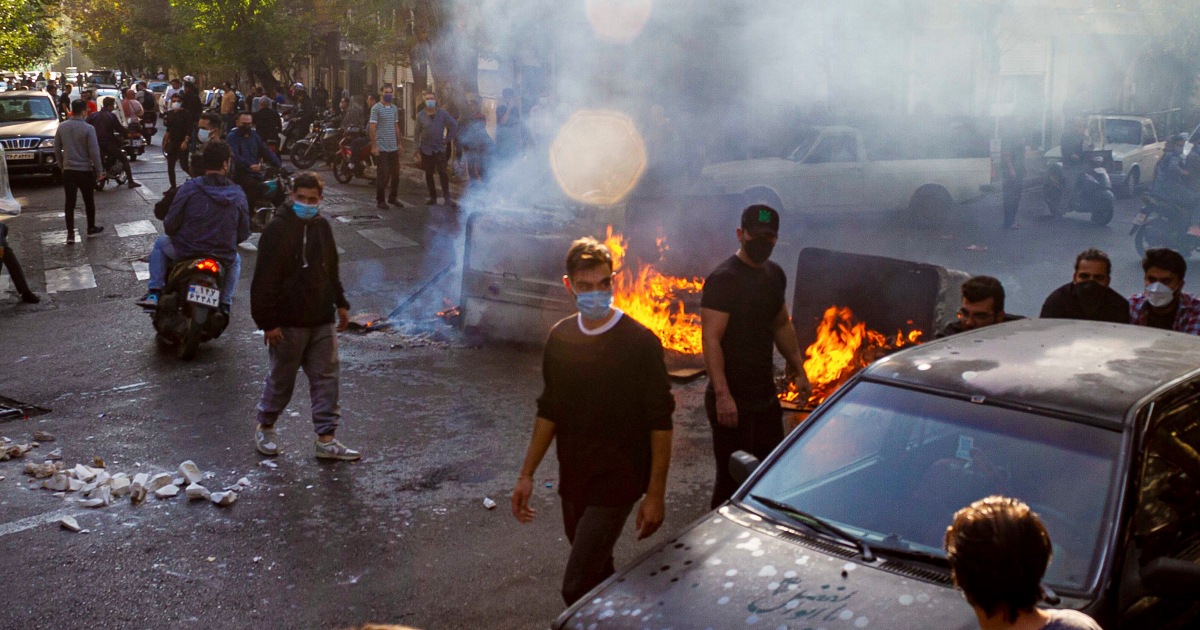Iran on Friday executed three men accused of deadly violence during anti-government protests last year despite objections from human rights groups.
Mizan, the judiciary website, announced the executions of Majid Kazemi, Saleh Mirashemi and Saeed Yaghoubi, without saying how they were carried out. Authorities say they killed a police officer and two members of the Basij paramilitary group in Isfahan in November during nationwide protests.
Rights groups say the three were subjected to torture, forced into televised confessions and denied due process.
The protests erupted last September after the death of a 22-year-old woman, Mahsa Amini, who had been detained by the country’s morality police for allegedly violating their strict Islamic dress code. The demonstrations quickly turned into calls for the overthrow of the theocracy that has ruled Iran since the 1979 Islamic Revolution.
The demonstrations have largely subsided in recent months, although there are still sporadic acts of defiance, including the refusal by a growing number of women to wear the mandatory Islamic headscarf, known as the hijab.
Iran has executed a total of seven people in connection with the protests. Rights groups say they and several others who have been sentenced to death were sentenced by secret state security courts and denied the right to defend themselves.
«The prosecution relied on forced ‘confessions,’ and the prosecution was riddled with irregularities that reveal this was a politically motivated case,» said Hadi Ghaemi, executive director of the New York-based Center for Human Rights in Iran. York, about the three executed on Friday.
The group said Kazemi called a relative and accused authorities of torturing him by whipping his feet, using a stun gun and threatening to sexually assault him.
London-based Amnesty International also criticized the cases.
“The outrageous way in which Iran’s judicial system hastened the trial and sentencing of these protesters amid the use of torture-tainted ‘confessions,’ gross procedural flaws and a lack of evidence is yet another example of the authorities’ blatant indifference. Iranians. for the right to life and a fair trial,” said Diana Eltahawy, Amnesty’s Deputy Director for the Middle East and North Africa.
Iran launched a strong crackdown on the protests, portraying them, without evidence, as a foreign-backed conspiracy. Protesters said they were fed up after decades of repression and poor governance. Iran’s economy has been in a tailspin since the United States unilaterally withdrew from the 2015 nuclear deal and reinstated crippling sanctions.
Robert Malley, the US envoy to Iran, had spoken out against the impending execution of the three men, calling it «an affront to the human rights and basic dignity of all Iranians» that showed that the government «has not He has learned nothing from the protests.”
“The United States will continue to support the Iranian people. We are coordinating closely with our allies and partners to expose and confront the Iranian regime’s relentless human rights abuses,» Malley tweeted Thursday.
More than 500 people were killed during months of protests, including dozens of members of the security forces. Some 19,000 people were arrested, though many have since been released.
Iran is one of the main executioners in the world. At least 582 people were executed in 2022, up from 333 the year before. The rise in executions, including for drug-related offenses and vague charges of “enmity against God” and “spreading corruption on earth”, has drawn criticism from UN officials and human rights activists.

